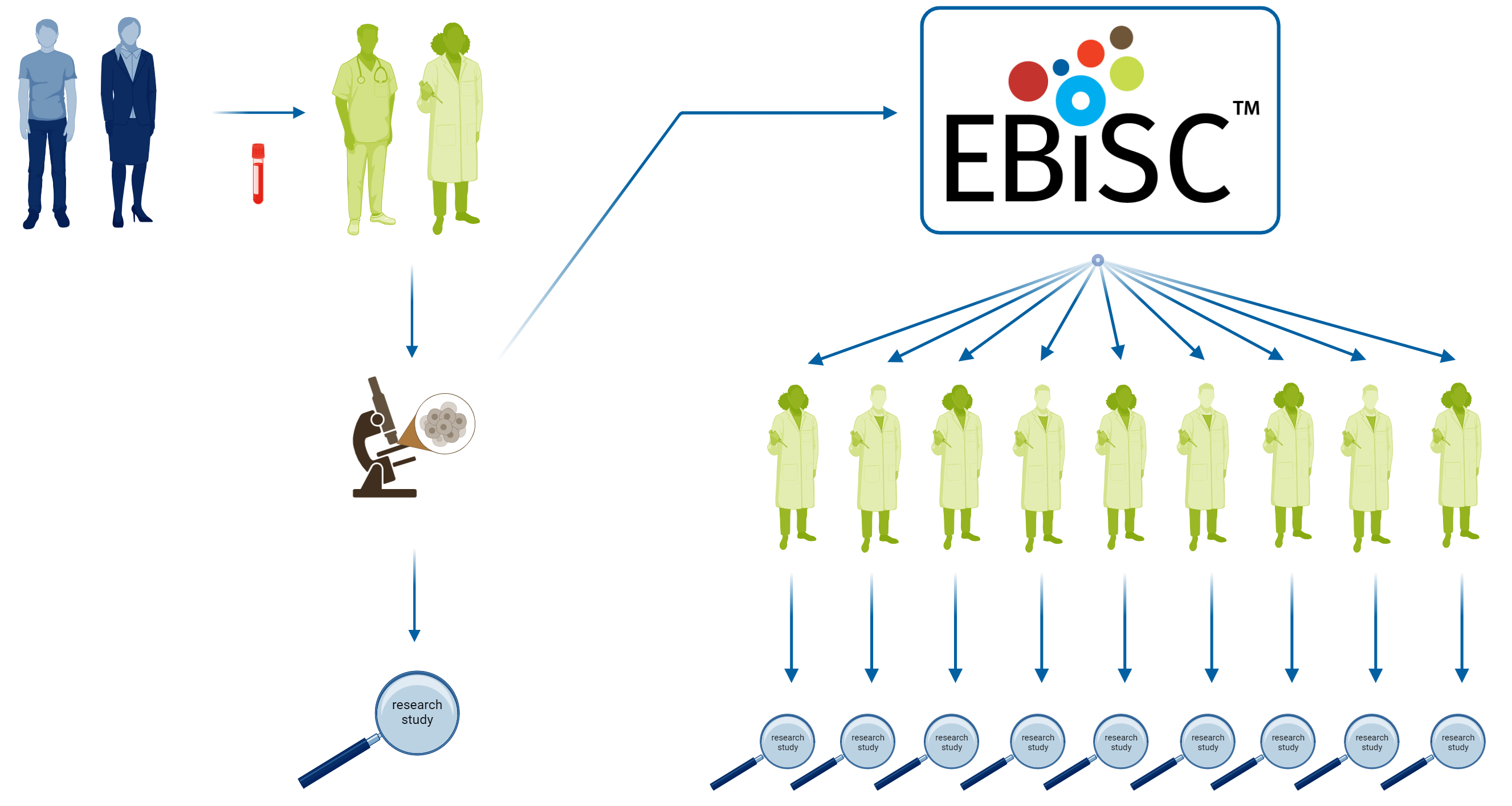Information for general public
What are iPSCs?
An iPS cell is a type of ‘pluripotent’ stem cell, which means that it can grow into most cell types in the human body, such as muscle, nerve, or liver cells. iPS cells are generated from samples of adult tissue such as blood, skin or hair follicles, and ‘induced’ in the laboratory to be pluripotent. They differ from embryonic stem cells, which are naturally pluripotent and can only be derived from an early stage developing embryo. IPS cells can be cultivated to form a group of cells called an ‘iPS cell line’ or ‘iPSC line’, which may survive indefinitely.
Human iPS cells are useful research tools, especially for studying the effect of genes on disease risks and for the development of new drugs and methods. Critically, they are derived from tissue from individuals who have been fully informed and are willingly consenting to tissue donation.
What is EBiSC?
EBiSC is a not-for-profit ‘stem cell bank’, which stores and shares a diverse collection of iPS cell lines, in a centralised facility, in order to make them easily available to researchers in Europe and around the world. EBiSC was initially founded through the collaborative undertaking of a large European consortium, funded jointly by the Innovative Medicines Initiative (IMI) of the European Union (EU), and members of the European Federation of Pharmaceutical Industries and Associations (EFPIA) and is now operated by facilities within EU and the United Kingdom.
EBiSC provides a significant biomaterial resource for researchers, who are increasingly looking to use iPS cell lines to help understand disease, to develop new drugs and to find new methods for creating therapies that might in future replace or treat damaged and diseased tissue.
EBiSC supports diverse research projects, both current and prospective, which have the prospect of advancing biomedical research. Sharing iPSC tools and data has the potential to generate long term public health benefits and increase social well-being. EBiSC charges a reasonable fee to researchers who obtain iPS cells from the Bank to sustain operations of the bank, allowing new iPSC lines to be collected and new stocks of iPSC lines to be made for distribution.

Individuals volunteer to donate tissue (e.g. a blood sample) to researchers, who then make iPS cells from it. Without EBiSC,
the iPS cells likely remain with the laboratory who originally made it. With EBiSC, we can share these cells to many research
laboratories worldwide, making iPSC research easier and more accessible and helping to accelerate research.
EBiSC collects iPS cell lines which have been generated by different research organisations so that we can share them with other researchers. This means we: